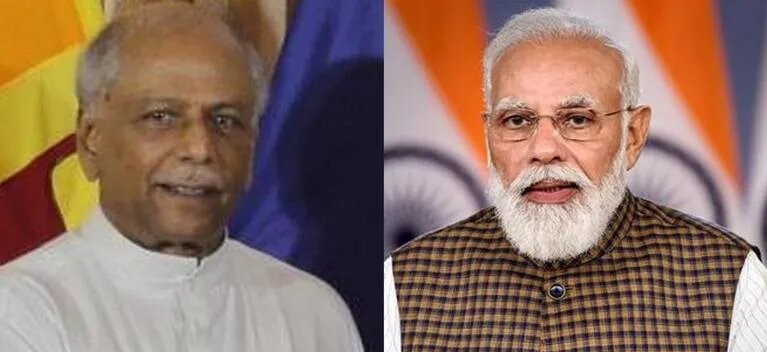On Saturday, Dinesh Gunawardena, the newly elected prime minister of Sri Lanka, thanked PM Narendra Modi and Indians for their courteous humanitarian assistance. See here.
https://twitter.com/IndiainSL/status/1555783940530585601
Prime Minister Dinesh Gunawardena said in response to Prime Minister Narendra Modi’s letter of appreciation that over the years, the steady friendship between India and Sri Lanka has flourished into a mutually advantageous relationship in a number of different fields.
The Indian High Embassy in Sri Lanka announced on Twitter, “the island country’s PM noted in response to a congratulatory letter that was given from PM Modi that the enduring ties of friendship flourished between the two countries.
“India and Sri Lanka have flourished over the years into a mutually rewarding partnership across multiple spheres,” it added. See here.
In a congratulatory letter, PM Modi promised PM Gunawardena of Sri Lanka that India would continue to support the island country.
He also expressed optimism for Sri Lanka’s swift economic recovery, which will ensure the prosperity and welfare of its people.
India has taken the lead in providing Sri Lanka with economic aid in accordance with their needs. It is one of the countries in world that has offered the most support during times of need.
Sri Lanka’s economy has been in a downward spiral since the start of 2022, and the government has stopped making payments on its foreign loans. The United Nations (UN) has warned that 5.7 million people “require immediate humanitarian assistance.”
Over 25 tonnes of medicine and medical supplies donated by the government and people of India over the past two months are estimated to be worth close to 370 million Sri Lankan rupees (SLR). This is in addition to the approximately USD 3.5 billion in economic aid and the provision of additional humanitarian supplies like rice, milk powder, and kerosene.
The government of India continues to support the people of Sri Lanka by providing aid in a variety of ways, including financial assistance, support with foreign exchange, material supplies, and many more.
These initiatives demonstrate that Prime Minister Narendra Modi’s “Neighborhood First” policy, which prioritises people-to-people engagement, is still in effect.
Since February, Sri Lanka has been experiencing a diesel shortage that has resulted in long and tedious daily power outages. Sri Lanka is currently experiencing severe food and electricity shortages, forcing the nation to ask for assistance from its neighbours.
The recession is primarily attributed to shortages in foreign exchange, caused by a downfall in tourism due to the COVID-19 pandemic.
In addition to depriving the people of their necessities, the country is also struggling to purchase enough gas and fuel.
Sri Lanka occupies a special place in the hearts of Indians given the long-standing relationships that date back almost to the beginning of the subcontinent’s documented history. The relationship is built upon the deep roots of a shared cultural and social past, as well as substantial people-to-people exchanges over millennia.
The foundation of recent development in this relationship has been the demand-driven and people-centered nature of India’s development partnership with Sri Lanka.
Sri Lanka is emerging as a stronger and mutually advantageous partner for India. India is providing basic goods to the island nation in addition to aid during the outbreak of the COVID-19 pandemic and fertiliser upheaval.
Sri Lanka is one of India’s largest development partners, and this collaboration has been a key pillar of the two nations’ bilateral ties over the years.
Sri Lanka has been a top destination for Indian direct investment for years. It is one of India’s most important SAARC (South Asian Association of Regional Cooperation) commercial partners. Following the March 2000 implementation of the India-Sri Lanka Free Trade Agreement, trade between the two nations increased very rapidly












